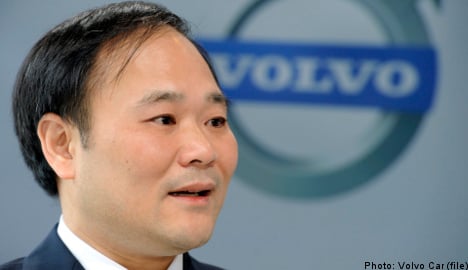The Chinese carmaker completed the purchase of the struggling Volvo from US auto giant Ford last month — and now chairman Li Shufu is looking to cash in on his investment by selling up to 300,000 cars a year in China alone.
“Our challenge is to get Volvo out of trouble,” Li said in an interview with the Wall Street Journal.
“From my perspective, Volvo’s product is already in very good demand and the company is profitable,” he told the newspaper. “Our real challenge is how we are going to evolve and develop the Volvo brand further.”
Geely paid $1.5 billion for Volvo, and said last month it also would invest a total of $900 million in the brand, known for its sturdy, family-friendly vehicles.
Li said he hopes to build three Volvo assembly plants in China that would produce up to 300,000 autos a year — all to be sold in the Asian nation, which overtook the United States last year to become the world’s top auto market.
Volvo sold about 335,000 cars worldwide last year, so Li’s plan would mean a near-doubling in sales. Building the three factories will require central government approval.
Li confirmed in the interview that Geely and Volvo were looking at factory sites in Shanghai and the southwestern city of Chengdu. The third plant could be in the northeastern city of Daqing, Li told the paper.
Manufacturing plants in Sweden and Belgium will be maintained, the company said last month.
Volvo sold just 24,000 cars in China in 2009, and Li says he knows he needs to boost the brand’s “sophistication” to match up with competitors Mercedes and BMW, perhaps by developing new luxury models.
If Volvo increases production in China, it could expand its presence in the lucrative government market. Beijing requires Chinese brands account for no less than 50 percent of government vehicles.
Geely has become one of China’s largest private carmakers since launching its auto manufacturing business in 1997. It has an annual production capacity of 300,000 cars. It hopes to boost sales to two million vehicles by 2015.



 Please whitelist us to continue reading.
Please whitelist us to continue reading.
Member comments